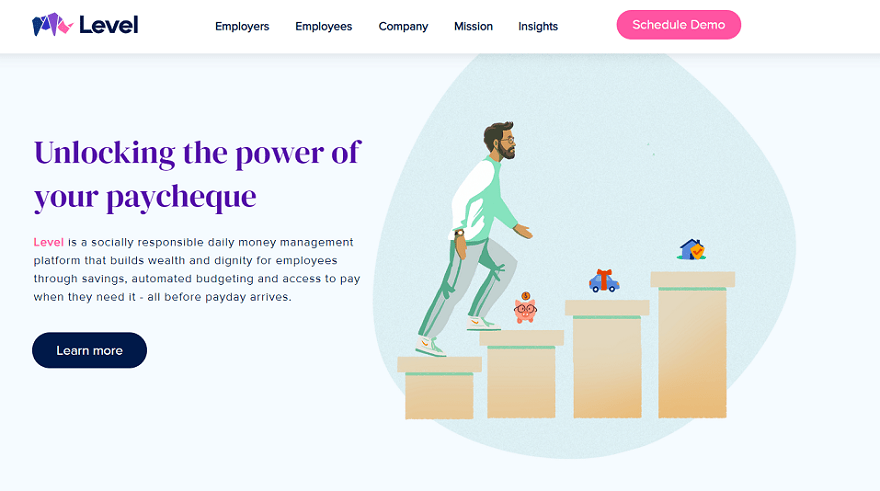With South Africa battling the COVID-19 pandemic, and its economy suffering, many families are facing ongoing financial hardships and resorting to taking loans from micro-lenders and loan sharks.
This was an issue experienced first hand by Raeesa Gabriels, whose domestic worker was exploited by a loan shark who confiscated her ID book when she could not keep up with his exorbitant interest rates.
“She feared for her safety and had to flee her home,” said Gabriels, who felt compelled to come up with a solution to help her domestic worker and others who suffer the same fate.
That solution was Level Finance, a daily money management platform that builds wealth and dignity for employees through savings, budgeting and access to their pay when they need it. It enables employees to view their daily salary, offers access to wages at the moment of need rather than at the end of the month, and gives them the power to save before payday arrives.
The key thing is that providing employees with access to money they have already earned means they can afford unexpected expenses and will not have to take out risky loans or pay exorbitant interest.
It is not just Gabriels’ domestic worker who faces challenges around living from pay cheque to pay cheque, which is a reality for 76 per cent of South Africans. Gabriels has witnessed the challenges within her own family too.
“My parents were never in debt when my dad was paid weekly, and that changed the moment he started getting paid monthly,” she said.
“Monthly pay cycles drive irregular spending, or the “payday millionaire” effect, where employees splurge on wages they previously didn’t have access to. This indulging in the earlier part of the month exposes them to cash flow issues, that gets worse as they get to later in the month. With little or nothing left over to carry them through the month, employees are prone to dipping into savings or accessing credit to cover any unexpected expense that arises,” said Gabriels.
Level Finance’s platform fills this gap, with Gabriels having registered it in November 2018. Take-off only really happened a few months later, however, when it was accepted into the AlphaCode Incubate programme in July 2019. This provided it with access to funding and support valued at ZAR2 million (US$119,000), and the startup hasn’t looked back.
Gabriels said uptake has been “really great”.
“We’ve been intentional about the number of employers we’re working with. Right now, we are focused on activation, retention and proving that Level Finance builds financial resilience for employees,” she said.
“To date Level Finance has saved employees thousands of rands in interest and penalty fees that they would have paid had it not been for our socially responsible daily money management platform.”
Currently operating in South Africa, Level Finance plans to expand into other African countries and emerging markets where the problem of 30-day pay cycles is also present. The startup charges the employee a monthly membership fee that can be subsidised by the employer.
Like all businesses, Level Finance has been impacted by COVID-19, forcing a slight change of strategy.
“Prior to lockdown we were onboarding a few franchise restaurants and had to stop because of this,” Gabriels said. “Our focus has since shifted to businesses that are less prone to lockdown disruptions.”


